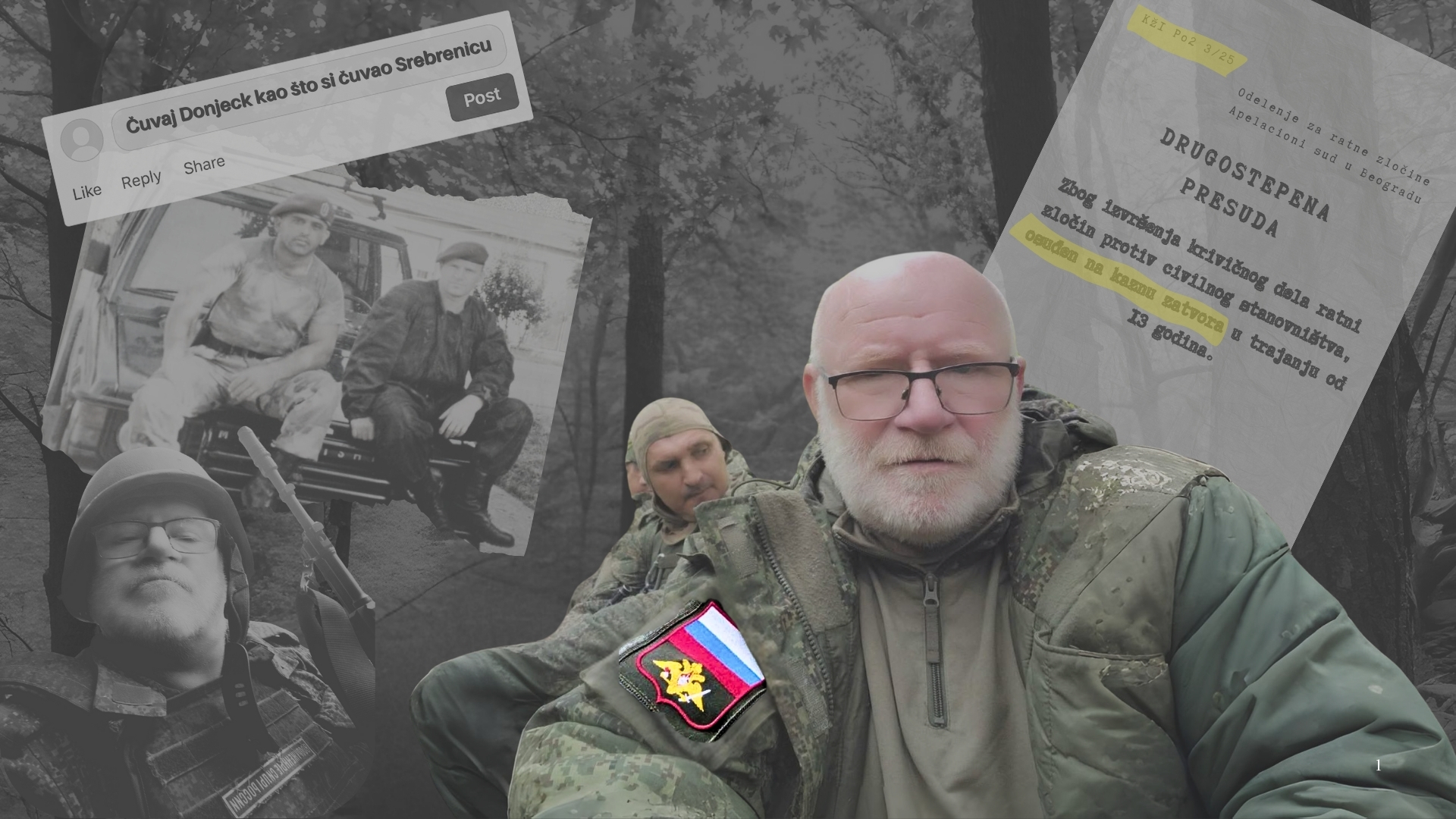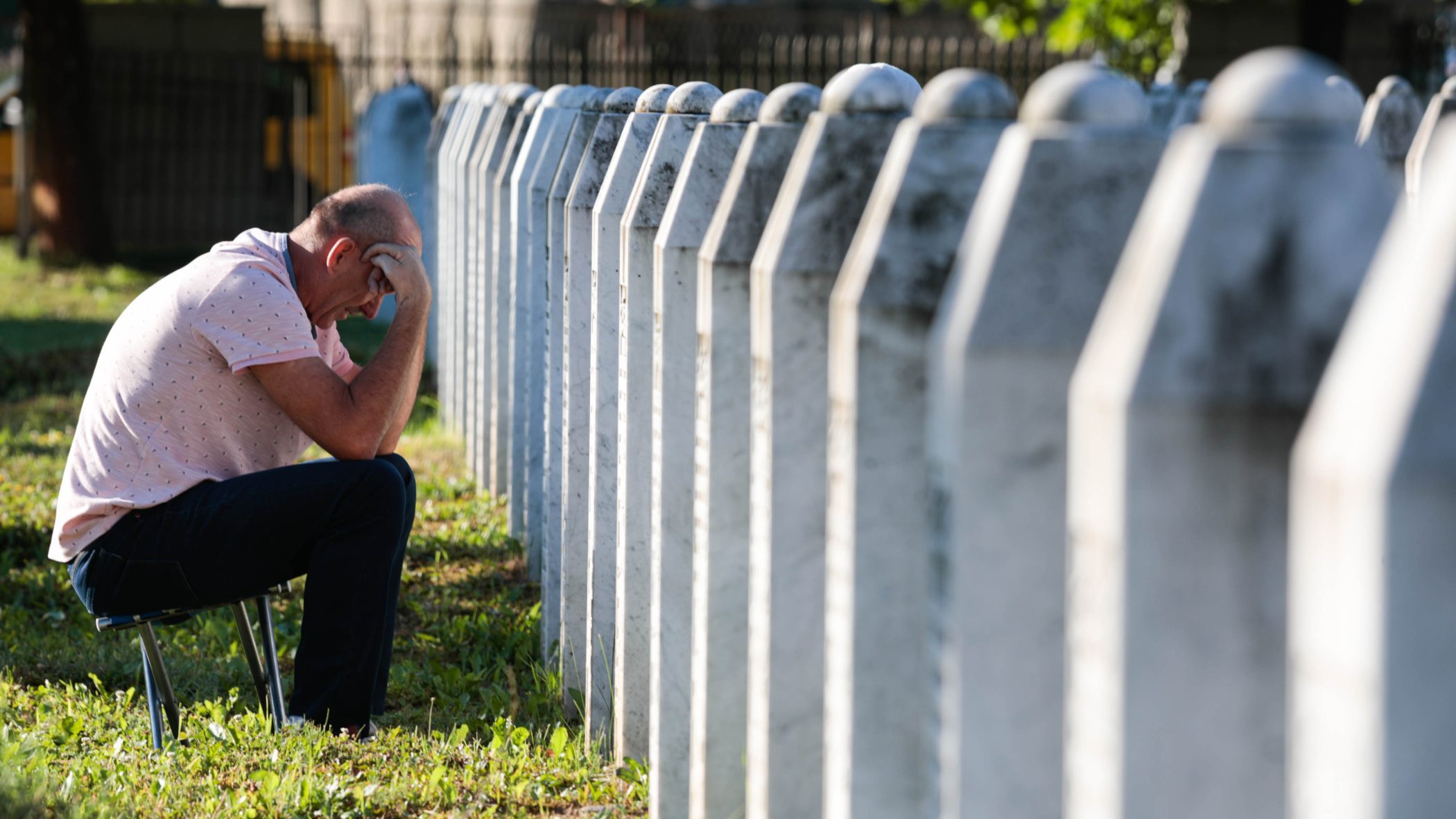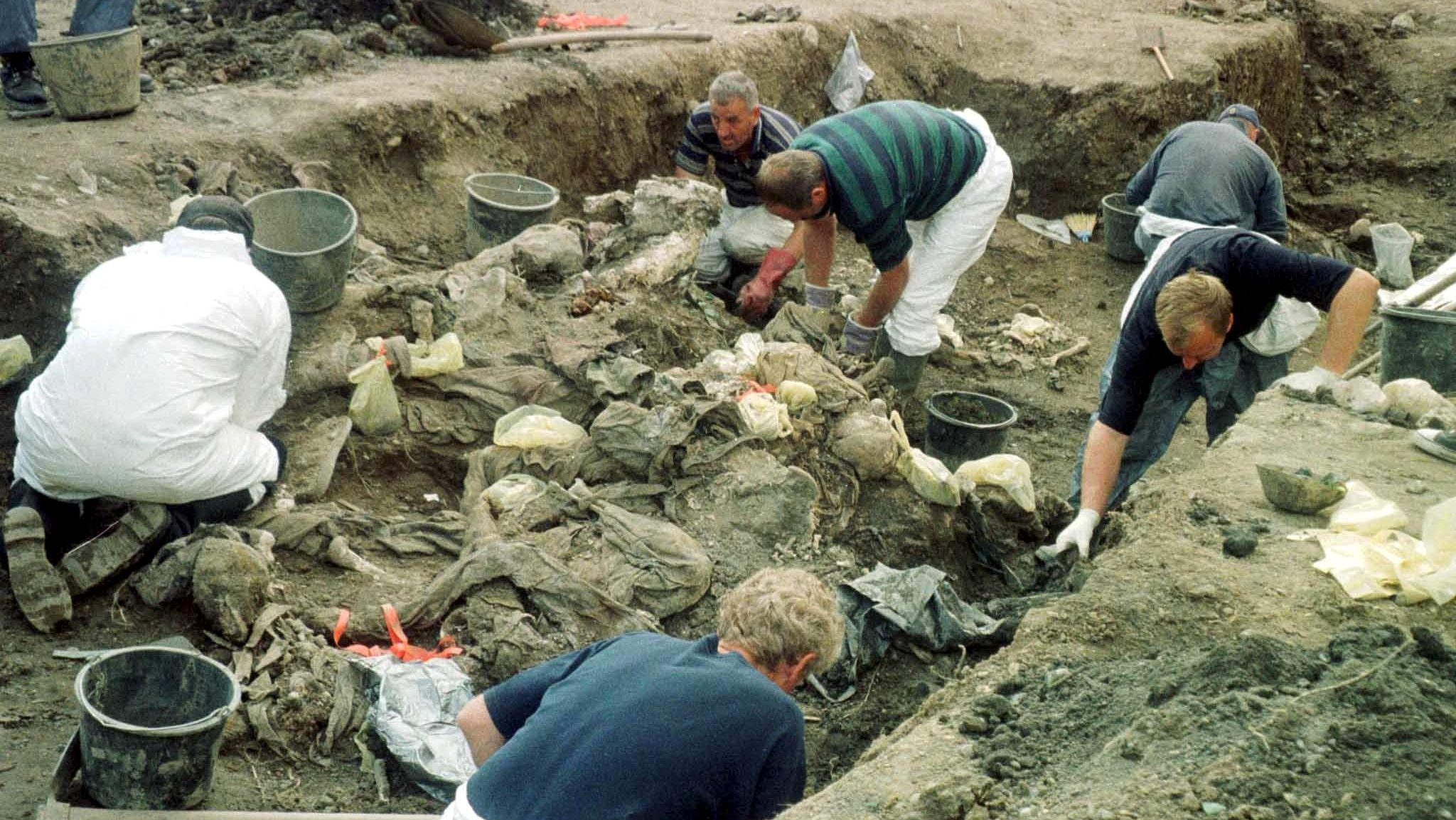This post is also available in: Bosnian
Canton’s hostile reaction to arrests of men suspected of abducting, torturing and killing Serb and Croat civilians during the siege shows culture of denial embraces all sides in Bosnia.
Sixteen years after the Dayton Accord, which ended the war in Bosnia, Sarajevo authorities show little willingness to tackle crimes committed against Serb and Croatian civilians by the mainly Bosniak Army of Bosnia and Herzegovina during the siege.
While Sarajevo was held under a brutal siege for almost four years during which tens of thousands of civilians were killed in artillery fire and from snipers shots fired from positions of the Bosnian Serb army, crimes were also committed against civilians of Croat and Serb nationality.
Vinko Lale, a pre-war employee of Sarajevo’s Oslobodjenje publishing house, was arrested by police and members of Territorial Defence in June 1992 while lunching with his family in Tarcin, 30 kilometres from Sarajevo.
“The war had begun and I was at my wife’s family’s home,” recalls Lale, adding that unknown armed persons then entered the house and told him he was going with them for a short interrogation.
The “short interrogation” lasted for a year and almost four months, until he was exchanged in October 1993. Most of that time he spent in the Silo detention camp in Tarcin, a part of that time under house arrest.
The conditions he recalls as extremely difficult. “We were held captive in groups of 36 people in rooms in which wheat was stored, which is why the temperature was always low,” he says. “We had to lie on concrete and relieve ourselves in a bucket, which was emptied every 24 hours. The worst was that there was little food and water.”
One loaf, which was their daily ration, Lale says, would be broken into 16 or 18 pieces and shared round. The physical abuse that they endured was nothing compared to the exhaustion created by starvation, he adds.
At one point, he says he weighed 48 kilos, which was approximately half his normal weight.
“I will never forget the death of one prisoner, a man in his early thirties named Petko Krstic, who died of starvation. The last word he uttered was ‘bread!’,” Lale recalls.
He claims the youngest prisoner in the Silo was 14-year-old Leo Kapetanovic, and the eldest was Vaso Sarenac, who was 82 at the time.
In November this year, Bosnia’s State Prosecutor ordered the arrest of the following people for the crime: Mustafa Djelilovic, Fadil Covic, Mirsad Sabic, Nezir Kazic, Becir Hujic, Halid Covic, Serif Mesanovic and Nermin Kalember.
All are suspected of taking part in crimes in the territory of Tarcin between 1992 and 1995.
Djelilovic at the time was president of the Municipal Assembly of Hadzici and at the same time president of the Crisis Headquarters and War Presidency of the municipality of Hadzici.
Covic was head of the police station in Hadzici. Sabic was a policeman in the station in Hadzici.
Kazic was a former commander of the Ninth Mountain Brigade of the Army of Bosnia and Herzegovina, Hujic, a warden of the Silo camp, Covic and Mesanovic, camp deputy wardens, and Kalember a camp guard in the same facility.
The suspects are charged with war crimes against civilian population and prisoners of war in the Silo camp, the holding cells of the Ninth May primary school in Pazaric, and the camp and storage area of the Krupa army barracks.
In those facilities, according to State Prosecutors, a large number of civilians and prisoners of war were exposed to inhumane treatment, forced labour, torture, physical and mental pain as well as denial of their right to a fair trial. Several persons died as a result of the abuse.
Vasvija Vidovic, lawyer for Djelilovic and member also of the legal team for Covic, told BIRN she is still not ready to comment on the specific charges.
“We are just beginning of this case and must conduct our own investigations, which is why I would not like to comment on the details. We’ve been presented with extensive evidence material and need time to process that amount of data,” Vidovic said.
Meanwhile, Instead of supporting the arrest of the suspects for war crimes, the representatives in the Sarajevo Canton Assembly voted without a single vote against to condemn “the manner and procedure of arrest of suspected members of Army of Bosnia and Herzegovina”.
The decision at the session on November 29 sheds light on how the Sarajevo political establishment is reluctant to confront the issue of crimes against Sarajevo Serbs and Croats.
Both the government and opposition in the cantonal assembly – in which the ruling majority is made up of representatives from the Party of Democratic Action, SDA, and the Social Democratic Party, SDP, jointly protested against the arrest, saying the suspects were apprehended “as if they were criminals in hiding”.
In addition, the Assembly gave its support for the Ministry of Veteran Affairs in the Sarajevo Canton to provide the defendants with legal aid and all others forms of assistance.
The Assembly instructed the line ministry to use the Foundation of Truth, Justice and Dignity to “activate all possibilities for legal, financial and material assistance to the arrested former members of Army of Bosnia and Herzegovina and their families.”
Only two deputies in the assembly declined to vote in support of the war crime suspects, Pedja Kojovic and Danis Tanovic, members of Our Party.
Dennis Gratz, president of this small party, said Our Party refused to join the vote because he considered the issue “beyond the assembly’s jurisdiction”. He added that the debate had “turned into cheap manipulation of the soldiers and of patriotism”.
He also said that both Tanovic and Kojovic believed that a vote of this kind constituted “interference in the work of the State Investigation and Protection Agency”, said Gratz.
“We believe that crimes and criminals cannot be treated differently under the law,” he told Balkan Insight. “Everyone suspected of committing a war crime in the 1990s must become a subject of investigation.
“The decision by the Sarajevo Assembly only shows that political parties in the Canton and Federation of Bosnia and Herzegovina fall into the same trap as those in the Republika Srpska,” he added.
“This move contributes to general relativization of the events from the 1990s in which everyone protects their ‘own’ criminals, while criminal acts and war crimes somehow remain neglected.”
The only positive action by the city’s political elite concerning crimes committed inside Sarajevo by the Army of Bosnia and Herzegovina is an initiative to erect a monument at Kazani at Trebevic to victims of war crimes committed by members of the army.
This initiative was launched in late October by the vice-president of the Federation of Bosnia and Herzegovina, Svetozar Pudaric.
The notorious abyss at Trebevic became infamous as a place of execution for citizens of Sarajevo.
Most victims were Serbs, and the action by vice-president of the Federation – if the city fathers under Trebevic keep their promise, made following official endorsement of of Pudaric’s initiative – will result in the construction of a cultivated path and a memorial plaque.
“While we shared what little was left for sharing among people, while we together defended ourselves from the fascist attack on our way of life… and while hundreds of honest, good and courageous citizens of Sarajevo took up to arms to defend this beautiful city and its soul, there were those who, using the fight for freedom and hiding behind it, did the very same thing as those who were surrounding us,” Pudaric wrote in his initiative.
“They were even worse, for while presenting themselves as ‘us’ they were not only killing innocent people but besmirching all of us,” Pudaric added.
Although it is known that members of the Tenth Mountain Brigade of the First Corp, commanded by Musan Topalovic “Caco” – between the start of the siege of Sarajevo in spring 1992 and his death in 1993 – took citizens of Sarajevo to dig trenches, where they were murdered and their bodies thrown into the pit, the killings have never been officially proclaimed a war crime.
There is also still no official data on the number of murdered people at the site. Post-war investigations unearthed the remains of around 30 persons, barely third of whom have since been identified.
“A whole generation grew up since the end of war and we still do not know the exact number of people who were killed or who they all were,” Pudaric said, paying his respects at Kazani, 16 years after the war.
“And even with those we know about, I wonder what has been done for them and their families. Their only fault was that in someone’s opinion they had the wrong name or were at the wrong place in their own city.”
However, Pudaric says he sees nothing wrong in the decision by the Sarajevo Assembly to condemn the arrest of the suspects of war crimes against Serbs and Croats in Tarcin. In an interview for Radio Sarajevo, Pudaric said he did not intend to criticise the decision.
Unlike Pudaric, his party colleague, Mirjana Malic, who is presiding over the cantonal assembly, told BIRN that the decision to condemn the arrest of war crime suspects was “devoid of soul and morality.
“We tried to say at the start that such a decision is completely unnecessary, since the law itself envisages material support to war crime suspects,” she said.
“It later turned out there was no need to condemn the action of the State Agency in which there were no irregularities,” Malic added.
Asked why she had then supported the decision of the Cantonal Assembly, Malic said: “There was such an atmosphere around us that if we had voted against it, we would have been proclaimed enemies of the state.
“We could not do a thing. So we ended up having no soul and morality. We ended up victims of paranoia in which people think that war criminals are at the same time heroes.”



